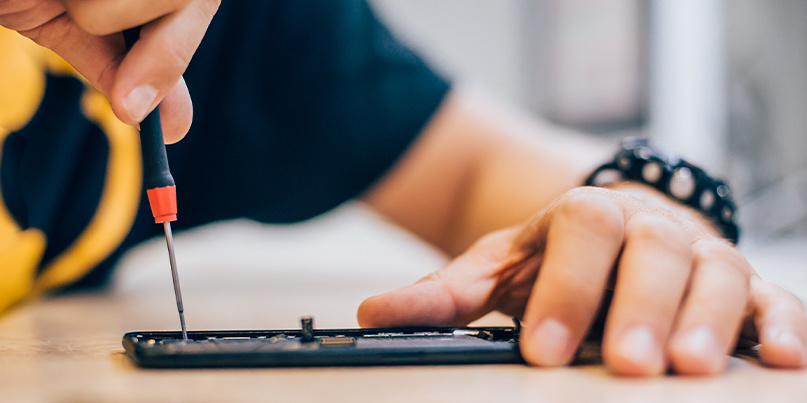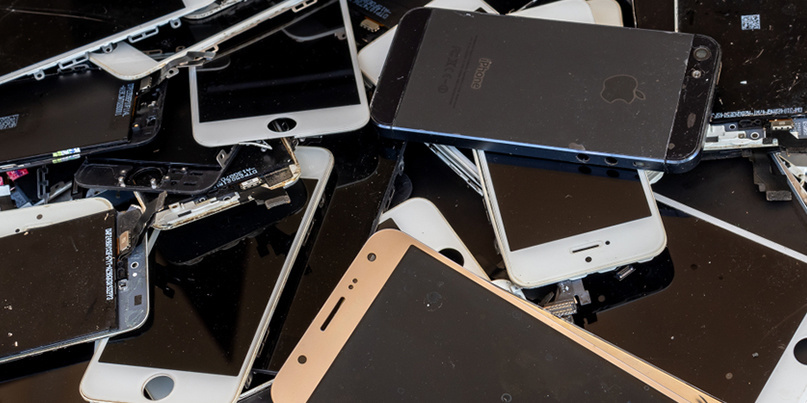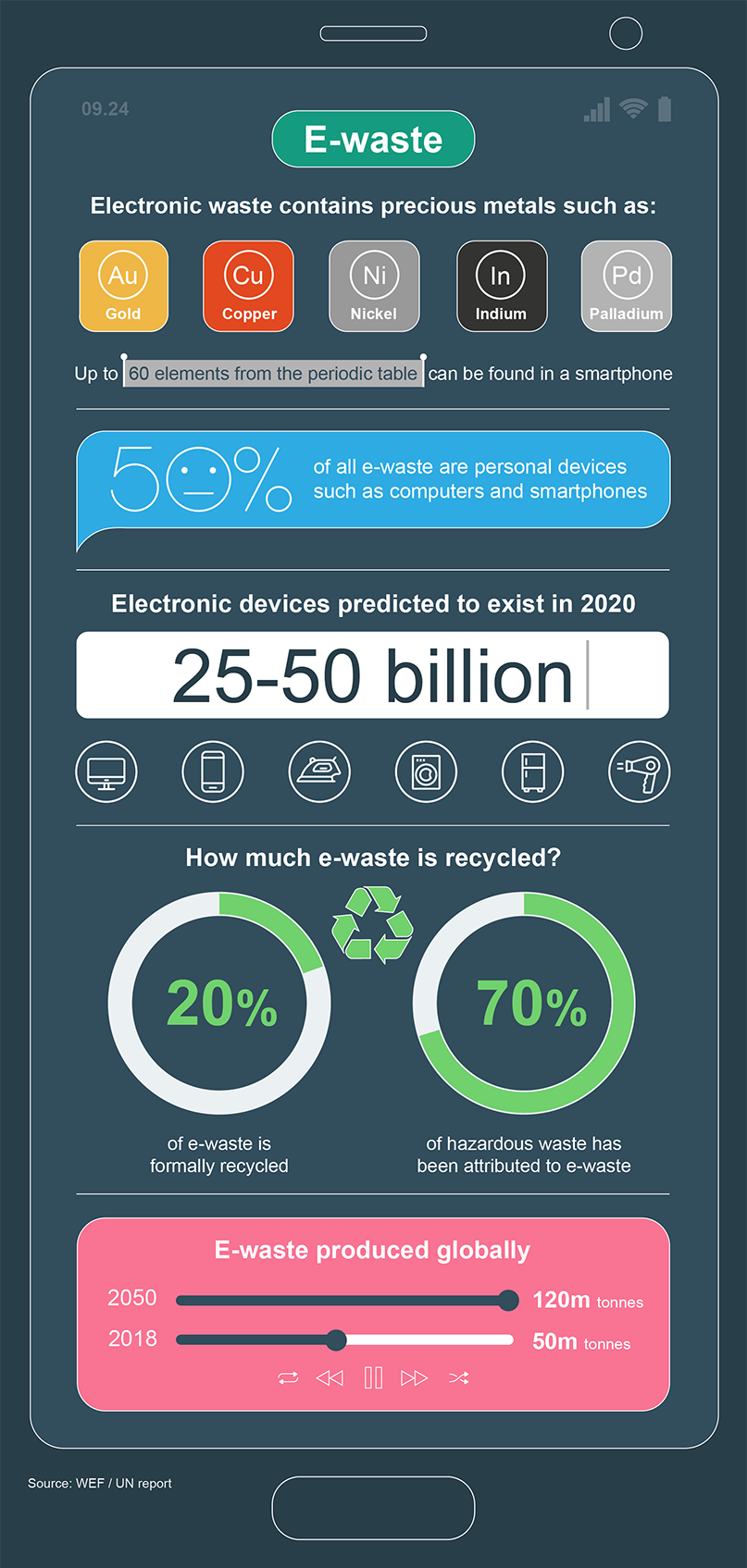Have you met Apple?

The European Union is to provide its residents with a right to repair their digital devices in an environmental action plan issued last week.
The adoption of the new Circular Economy Action Plan will see the introduction of legislation aimed at reducing the consumption of single-use products, and increase sustainability across the European marketplace in all sectors of production.
Particular attention has been paid to the electronics manufacturing sector to ensure products such as smartphones are built to last longer, in what is a long-awaited expansion of the European Green Deal, signed last December with the intention to make the bloc carbon neutral by 2050.
In a press statement issued on March 11, Frans Timmermans, vice president of the European Commission and the person in charge of overseeing the European Green Deal, said: “Many products break down too easily, cannot be reused, repaired, or recycled, or are made for single use only.
“There is a huge potential to be exploited both for businesses and consumers.”
Canned obsolescence
Part of the EU’s green competitive strategy involves placing increased regulation on the manufacturing supply chain and “transforming” the way certain products are made.
“Single-use will be restricted, premature obsolescence tackled, and the destruction of unsold durable goods banned,” it said.
For electronics, this means prospective legislation aimed at ‘ecodesign’, as well as ensuring consumers have the right to repair their devices – both of which have been welcomed by environmental activist groups such as Right to Repair Europe.
“In the past, pressure from manufacturers has delayed any action on this front at the European Commission level,” Chloé Mikolajczak, a spokesperson from Right to Repair Europe, told The Daily Swig.
“Similarly, industries get to do their influence work in the ecodesign process behind closed doors, which means it’s often unchallenged and allowed them to considerably water down the first right to repair provisions.”

Under pressure
Apple, among other tech manufacturers, has been notoriously reluctant to provide consumers with access to iPhone parts and software, with cybersecurity and innovation cited as the company’s main concerns.
Providing consumers with software diagnostic tools or hardware schemes, in Apple’s view, would leave the door wide open for criminal hackers to compromise the devices, highlighting the pressure put on legislators, both in the EU and elsewhere.
Last year, however, the EU passed a law allowing for the right to repair household appliances, with new standards aimed at forcing manufacturers to supply parts to independent repairers.
The rules, which are due to be applicable across member states in 2021, also create the conditions for longer-lasting products.
Progressive change
While it is unclear how this new mandate will translate to mobile devices under the Circular Economy Action Plan, Mikolajczak says the published report signals a progressive change of pace for the climate, and a major win for consumer rights.
“Moreover, a key difference between the first products category (white good) and electronics is that there is no manufacturing of electronics at scale in Europe, so no direct fear of jobs losses,” she said.
But campaigners still foresee industry resistance, not least from Apple, which pushed back on an EU-wide proposal in January to set a standard for a common mobile phone charger to help combat the environmental issue of electronic waste, which is currently on track to create 120 million tonnes of landfill by 2050.
“We expect them to throw everything they have at these new ecodesign measures,” Mikolajczak said.

Planet over profit
The Ecodesign Directive, part of the EU Action Plan, sets out rules for product-specific standards for energy efficiency. It includes a requirement for obsolete software to be updated and for manufacturers to assure the repairability of electronics.
“We suspect the main response from manufacturers will be to keep price of spare parts high, as this aspect is not regulated by ecodesign,” Mikolajczak said.
But some manufacturers have welcomed the EU initiatives, including Fairphone, a company that sells sustainable Android-based smartphones that are built using responsibly sourced materials.
“I think what it will do is create a more level playing field for everyone in the industry when it comes to sustainability,” Miquel Ballester, Circular Innovation lead at Fairphone, told The Daily Swig.
“It would require manufacturers to make electronics that are easily repairable, particularly batteries, and provide software upgrades for longer – supporting us [Fairphone] in our quest to extend the lifespan of electronics.”
The quest for device sustainability is moving forward in the US, too – but with understandable caution.
Last year, for instance, in what many viewed as a response to right to repair campaign efforts, Apple started to grant independent repair shops in the US with access to its smartphone parts, including some out-of-warranty models.
“We believe the safest and most reliable repair is one handled by a trained technician using genuine parts that have been properly engineered and rigorously tested,” the company said in a statement released at the time.
Apple has also trialled its Independent Repair Provider program in Europe.
The tech giant did not respond to The Daily Swig’s request for an update on its plans to expand this program now that the EU has hinted that the right to repair will soon be mandatory.
YOU MIGHT ALSO LIKE Security lifeline: WhatsApp to pull support for older Android and iOS devices next month






